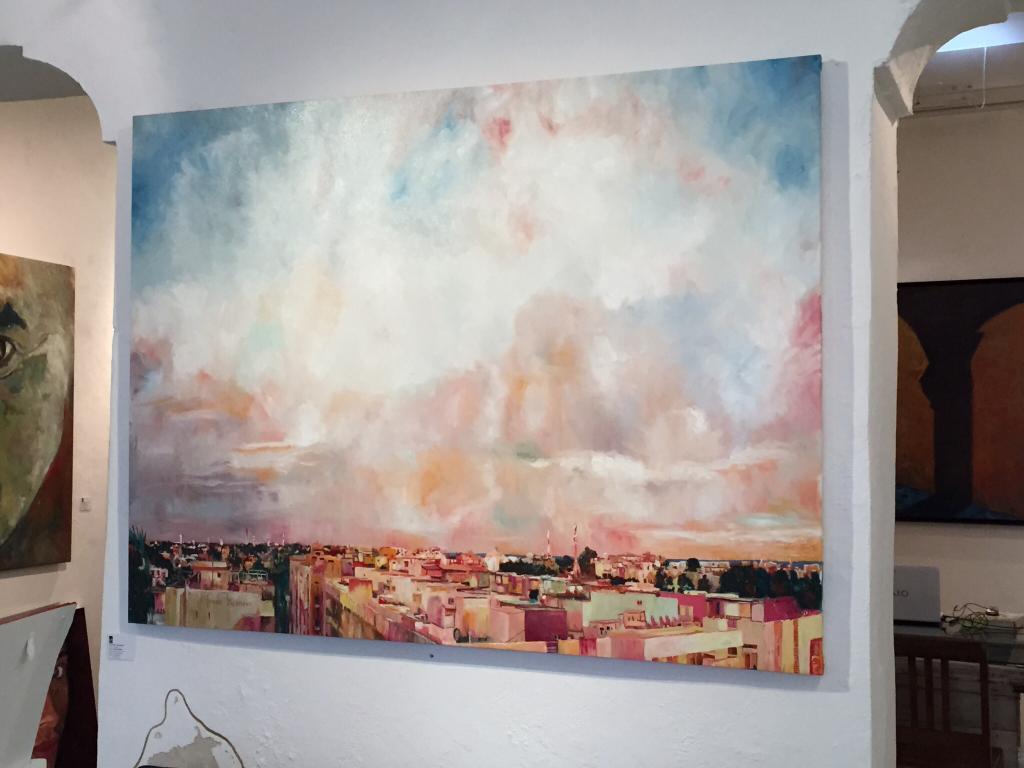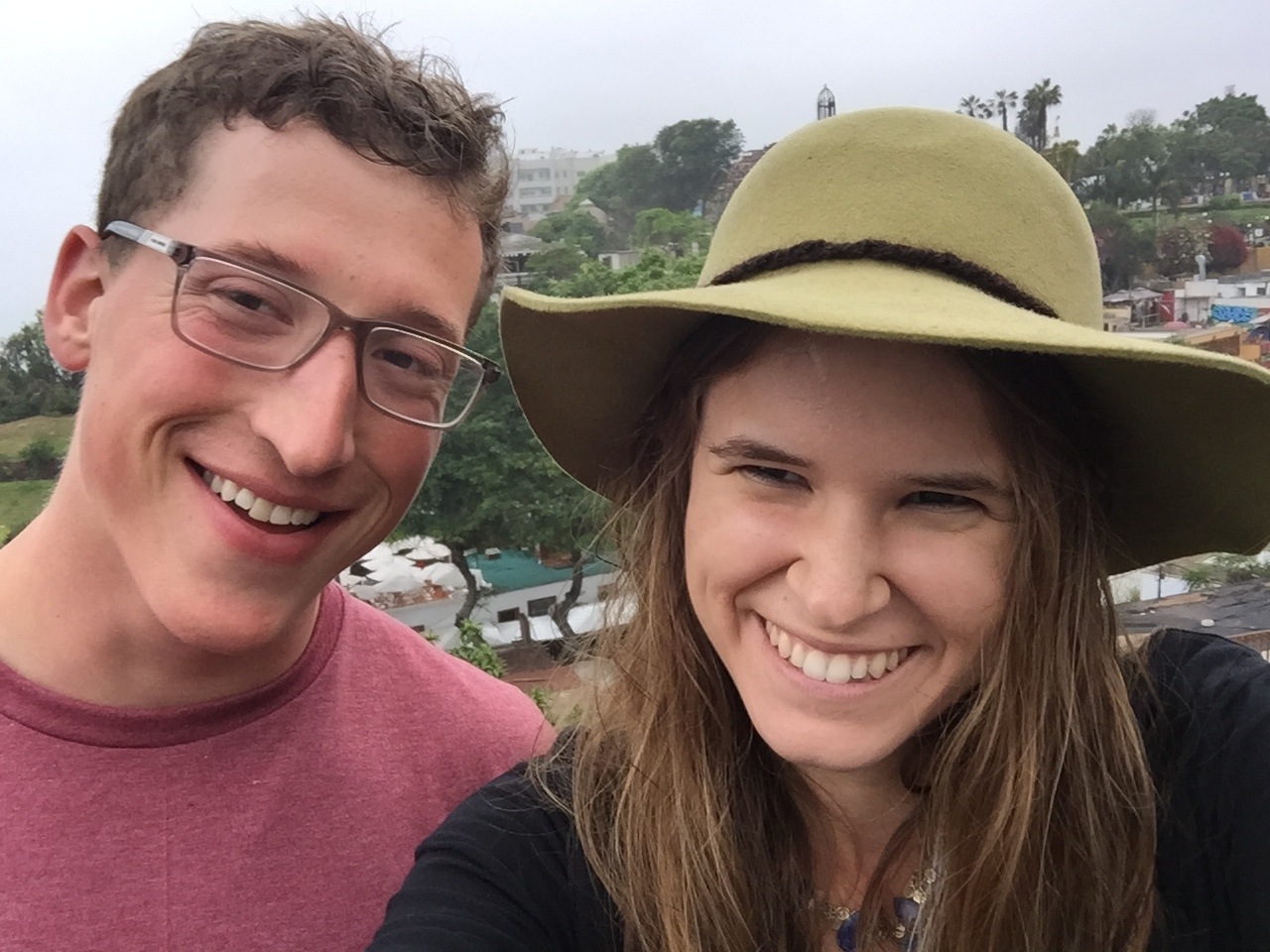Tucked within Barranco, a colorful community and former fishtown in Lima, Twist has managed to create good, old fashioned American burgers with a twist of Peruvian influence. On the menu, you will find a delicious alpaca burger (one of Andrew’s personal favorites) and the Barranco Burger with spicy aji based sauced on top. For a couple wayward Americans, we were in burger heaven.
“We’ve been in business for two years now,” says Jimmy McManners, an British ex-pat and founder of Twist. “When we opened, burger joints weren’t really a thing in Lima and we were able to truly differentiate ourselves from local restaurants. We also opened Twist in the midst of an artisanal beer boom in Lima. And there’s nothing that goes better with a good burger than a good beer” (we second that statement).
Jimmy McManners in front of his delicious menu at Twist.
Opening a business in Peru was anything but a breeze for Jimmy. “It took us a good two years to obtain a license. Most people will bribe their way through the government bureaucracy but I refused. We wound up asking the mayor for special permission to open the business without a license, so we could start operations.”
Aside from the bureaucratic red tape, Jimmy says, “maintaining amazing service has been a difficulty.” When we prodded him on the subject, he admits that he does all he can to motivate employees. “You get way more from people if you provide a fair wage and treat them well. If you don’t, they will lose their drive or quit. If you lose a good staff member in this business, you are stupid. They are hard to find! Your employees are your best asset.”
Today, competition has increased in Barranco. “four years ago, there were few restaurants here. Now they are opening and closing all the time.” The tourism industry has played a role as more and more tourists flock to Barranco and away from Miraflores. “About 50% of my customers are either tourists or ex-pats,” says Jimmy. “The reason why they are coming to Twist is Trip Advisor.” At the time of our visit, Twist was the third most recommended restaurant in Lima.


























